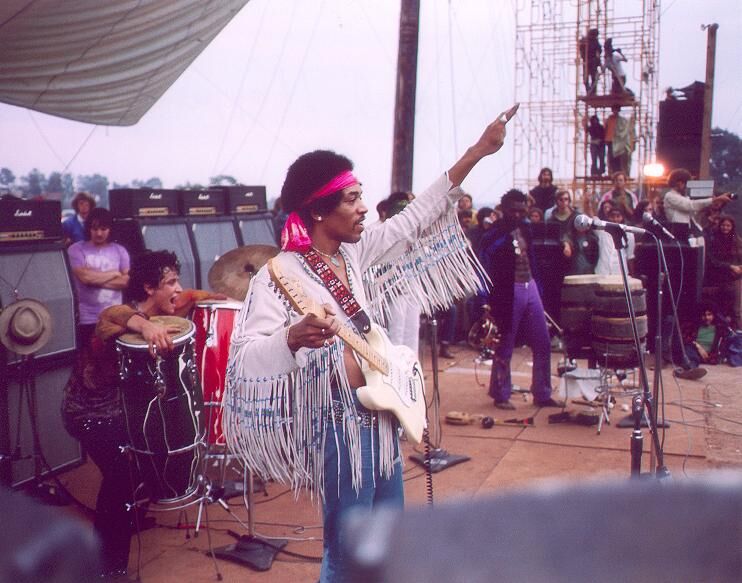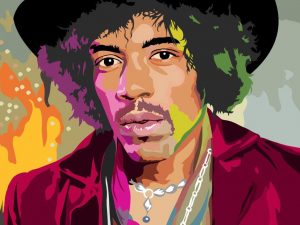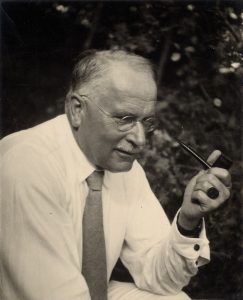Jimi Hendrix: Rock and Roll Innovator
When you think of the rock legend Jimi Hendrix, you will likely conjure heady images of flaming guitars, outrageous riffs, and distortion-filled solos that verge on spontaneous chaos. Songs such as the epic, blues-infused Voodoo Child, the frenetic, reimagined Star Spangled Banner performance, and the psychedelic–laden Purple Haze come to mind. And if you are a true fan, you also know the softer, more melodic, introspective musicality embodied in the songs The Wind Cries Mary, Castles Made of Sand, and Angel.
There is no doubt that Hendrix reshaped, if not reinvented rock and roll. As the creators of the official Jimi Hendrix site, put it, “Jimi Hendrix pioneered the explosive possibilities of the electric guitar.” And Smithsonian musicologist Reuben Jackson notes of the sonic-steeped Purple Haze: “It altered the syntax of the music, if you will, in a way I compare to, say, James Joyce’s Ulysses. You read a page or two of Ulysses and then you listen to just ‘Purple Haze’, and you think, “my goodness, what is this?” Of course Jimi himself put a premium on music, stating, “If there is something to be changed in this world, then it can only happen through music.”

Jimi Hendrix: Enlightened Artist
Yet, to see Hendrix as merely a musical innovator is the equivalent of viewing Albert Einstein as just a physicist, because deep beneath the surface appeal of psychedelia and hyperbolic guitar work, Hendrix was a profound soul whose love for his fellow brothers and sisters transcended time and space. And though he was taken from the earthly plane more than 50 years ago, the core of his philosophical essence offers a rich tapestry of spiritual insights, if we are willing to dig a little.
As Mark Clague, an associate professor of Musicology, Afro-American and African Studies, and American Culture at the University of Michigan puts it in his article, “Psychedelic Citizenship: Jimi Hendrix as Tone Poet”, “. . . [the] celebration of the psychedelic showman is simultaneously a dismissal of his work as an artist. Jimi’s drugged-out, purple-haze persona easily overshadows Hendrix as composer or political thinker.”
Of course, in reality, Hendrix was both a talented musician and modern bodhisattva of sorts. A poignant example is his iconic rendition of The Star Spangled Banner, known as the “Woodstock Banner.” As Clague points out, “its strains of protest . . stares unflinchingly at violence and discrimination—things that must be changed to realize Key’s lyrical vision of a ‘land of the free.’ In its patriotic sentiment, however, the “Woodstock Banner” offers Hendrix’s own vision of a nation made manifest through psychedelic fellowship.”
Jimi Hendrix: Archetype

This evocative and controversial interpretation of American patriotism is rich with implied meaning. As Affonso Celso de Miranda Neto explains in his article “Jimi Hendrix: The Heroic Narrative of an Electric Guitar’s Icon”, “The clothing used by Hendrix had fringes under the arms, like bird wings, which increased his symbolism as a primitive archetype of transcendence.” It is this synthesis of artistic panache and humble humanism that makes Hendrix retain his metaphysical currency. If we can conjure both the artist and the humble human inside of us, we can not only fulfill our potential for greatness, but show others they can also, because we are all merely humans on an interconnected soul journey.
Or as Hendrix put it in his song Bold as Love: “In fact I’m trying to say it’s frightened like me./And all of these emotions of mine keep holding me/From giving my life to a rainbow like you.” Hendrix was the modern epitome of a tortured artist, at once imbued with greatness and vulnerability, tragically-flawed but painfully self aware. As we scream and vilify one another in our attempt to thoroughly persuade others of our righteous world views, we would be better guided as human beings if we would heed Jimi’s hippy-like wisdom: “When the power of love overcomes the love of power, the world will know peace.”
Jimi Hendrix: Dreams and Potential
As we stumble through the minefield of identity politics and contemporary tribalism, we would be wise to remember what Hendrix stood for: potential for change. Dr. Thomas Jefferson Hoban IV, social scientist, journalist, and former Professor of Sociology and Food Science at North Carolina State University offers the following insight: “His legacy includes an open embrace of the great potential within our minds to achieve higher levels of consciousness. He was a fearless spiritual adventurer – boldly going where no man had yet gone. His lyrics and life provide valuable insights into the nature of the sixties counterculture.” Hendrix captures this dynamic with his own words when he famously said, “You have to give people something to dream on.”

Hendrix was on to something significant here, because dreams and human potential have always been inexorably intertwined. The eminent Swiss psychiatrist and contemporary mystic Carl Jung frames it thus: “A dream that is not understood remains a mere occurrence; understood it becomes a living experience.” Or as Jimi put it, “So, are you experienced?/Have you ever been experienced?/Well, I have.”
Hendrix even went as far as calling his band The Jimi Hendrix Experience. To live life fully, we must experience it in a conscious and connected manner, something we make difficult if not impossible when we continually strive to put labels and conditions on everything and everyone we encounter, cutting us off from each other’s essences.
In his core, Hendrix was a poetic amalgamation of idol and fragile human being, a living, breathing unification of greatness and vulnerability, a perception not lost on musician and primary songwriter Vernon Reid of the heavily Hendrix-influenced rock band, Living Colour: “See, there was no dividing line in Hendrix between a song, the improvisation, the singing. It was all one thing,” Reid enlightens.
In our current fractious, divided culture, Hendrix points us towards a sense of unity and genuineness we are sorely in need of. When in doubt, look no further than what Hendrix wrote in his interpretation of the Bob Dylan song, All Along the Watchtower: “And this is not our fate/So let us stop talkin’ falsely now/The hour’s getting late.” The hour is indeed getting late, and if you listen to the wind, you can hear it crying for change.






